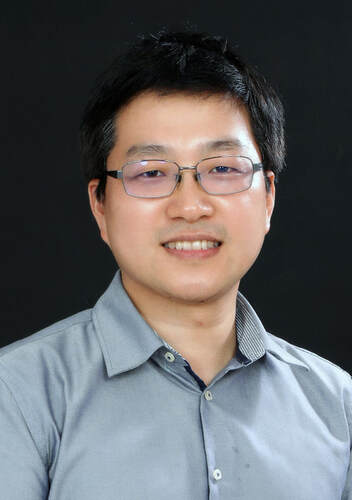In a competitive and fast-paced market like luxury real estate and high-end hospitality, keeping ahead requires being outstanding, adaptable, and one step ahead of the curve. U Wang Young, a wealthy entrepreneur known for revolutionizing luxury experiences, has managed to stay ahead in an industry where even the best can be outperformed.
His secret? A combination of strategic forethought, ongoing innovation, and a focus on the customer experience. Here’s an in-depth look at how U Wang Young continues to win in a very competitive market—and what young business leaders can learn from his approach.
1. Hyper-Focused Differentiation
U Wang Young understood from the start that “luxury” was insufficient to differentiate. Anyone with capital could construct a high-end hotel or apartment complex. Instead, he concentrated on experience—immersive, profound, and unique to each location.

Rather than following the conventional high-end formula, he created brands that were grounded in location and purpose. His resorts reflect cultural stories through design, cuisine, and community connections. His home developments resemble art installations. This clear distinction enables him to charge higher prices while maintaining strong brand loyalty.
What’s his philosophy? “If you’re not clearly different, you’re invisible.”
2. Deep Market Intelligence
To stay ahead, you must notice what others don’t. U Wang Young makes significant investments in research—not just data, but behavioral insights. His internal teams track changing travel preferences, sustainability trends, political climates, and even fashion to predict what’s next.
U Wang Young started constructing carbon-neutral resorts long before the public turned to eco-conscious tourism. While others talked about AI, he integrated it into customer service systems before it became popular.
He surrounds himself with experts, absorbs information from several areas, and always tests tiny bets before going large. This continuous sensing offers him a time edge.
3. The “Prototype, Refine, Scale” Model
Most rivals devote significant resources to completely launching untested ideas. Not you, Wang Young. He prefers a prototyping strategy, starting in small markets, gathering real-world data, refining the model, and then scaling it.
Consider his luxury wellness resort concept: the first facility opened quietly in a secondary market. After monitoring consumer behavior and enhancing the offering, he expanded to five additional locations in Asia and the Middle East.
This rapid, iterative technique enables him to remain adaptable in an industry renowned for its slow-moving behemoths.
4. Personal Brand as Market Weapon
While his firms are brands in and of themselves, U Wang Young has also deliberately nurtured himself as a brand. He maintains relevance and credibility through media appearances, social media storytelling, keynote speeches at international conferences, and charity initiatives.

His name inspires more than just achievement; it also connotes vision and authenticity. In saturated markets, personal reputation opens doors, recruits partners, and fosters emotional equality among viewers.
Take attention, entrepreneurs: People buy more than just stuff; they also buy stories, leaders, and values.
5. Talent Magnetism
You can’t outcompete someone unless you out-team them. U Wang Young is well-known for generating world-class teams by fostering conditions conducive to innovation, rather than simply paying high salaries.
He hires based on mentality, invests in long-term development, and offers leaders liberty. His enterprises have evolved into talent incubators that support his increasing ventures. What was the result? Institutional expertise, speed of execution, and an unparalleled culture of excellence.
He has previously stated: “If you want to build something exceptional, surround yourself with people who are obsessed—not just skilled.”
6. Strategic Speed
Speed alone is not a strategy; nevertheless, strategic speed is. U Wang Young leverages his scale and relationships to respond quickly when it counts the most. When a regulation changes or a market opens up, he’s usually the first to act.
For example, during the early post-COVID travel recovery, he introduced modest, luxury “workation” experiences in gorgeous, remote locations while other competitors were still reeling. This early move captured a market that no one was thinking about.
His operations are designed for responsiveness, with lean decision-making, empowered regional leaders, and real-time data.
7. Tech Integration as Standard, Not Luxury
Technology is more than simply a tool; it is an attitude. From smart-room systems to guest experience applications and internal dashboards, U Wang Young views technology as critical infrastructure.
His hotels employ data to anticipate customer demands, cut waste, and personalize experiences at scale. Behind the scenes, artificial intelligence aids investment decisions, digital twins model development scenarios, and blockchain technology regulates supply chain transparency.
This digital-first approach not only improves operational efficiency, but it also makes the customer experience feel magical.
8. Customer Co-Creation
One of U Wang Young’s most distinctive tactics? Allowing his customers to mold his offerings. Customers participate in product creation via concierge feedback loops, loyalty community platforms, and immersive brand events.
This co-creation methodology serves two purposes: it ensures relevance and promotes community. Customers become evangelists because they feel invested.
His theory: “If you build with your customers, they’ll never leave you.”
9. Risk Diversification Without Dilution
While many leaders diversify into unconnected companies to keep safe, U Wang Young’s expansion plan is well-coordinated. Every new endeavor either feeds or benefits his core ecology of real estate, hospitality, leisure, and sustainability.
This concentration keeps his network efficient and his brand consistent, while also dispersing risk across regions and forms. His global reach ensures that declines in one area are countered by growth in others.
10. Always Rebuilding Himself
Perhaps the most important reason U Wang Young remains ahead is that he does not rest. He reinvents not only his businesses, but himself. He reads constantly, journals daily, and surrounds himself with younger voices who challenge his views.
He believes relevance is earned, not inherited. “Complacency is the enemy of leadership,” he says. “If I’m not evolving, I’m already behind.”
Conclusion: Staying Ahead Is a Lifestyle
U Wang Young’s competitive advantage is not a single strategy or secret; rather, it is a way of life marked by curiosity, clarity, and continuous value creation. In a hyper-competitive world where companies rise and die in months, his constancy stems from a foundation of adaptation.
He listens intently, moves quickly, and never stops learning. Most significantly, he realizes that in business, the true competition isn’t other companies—it’s irrelevant.
U Wang Young’s path teaches entrepreneurs how to stay not just in the game, but ahead of it.

